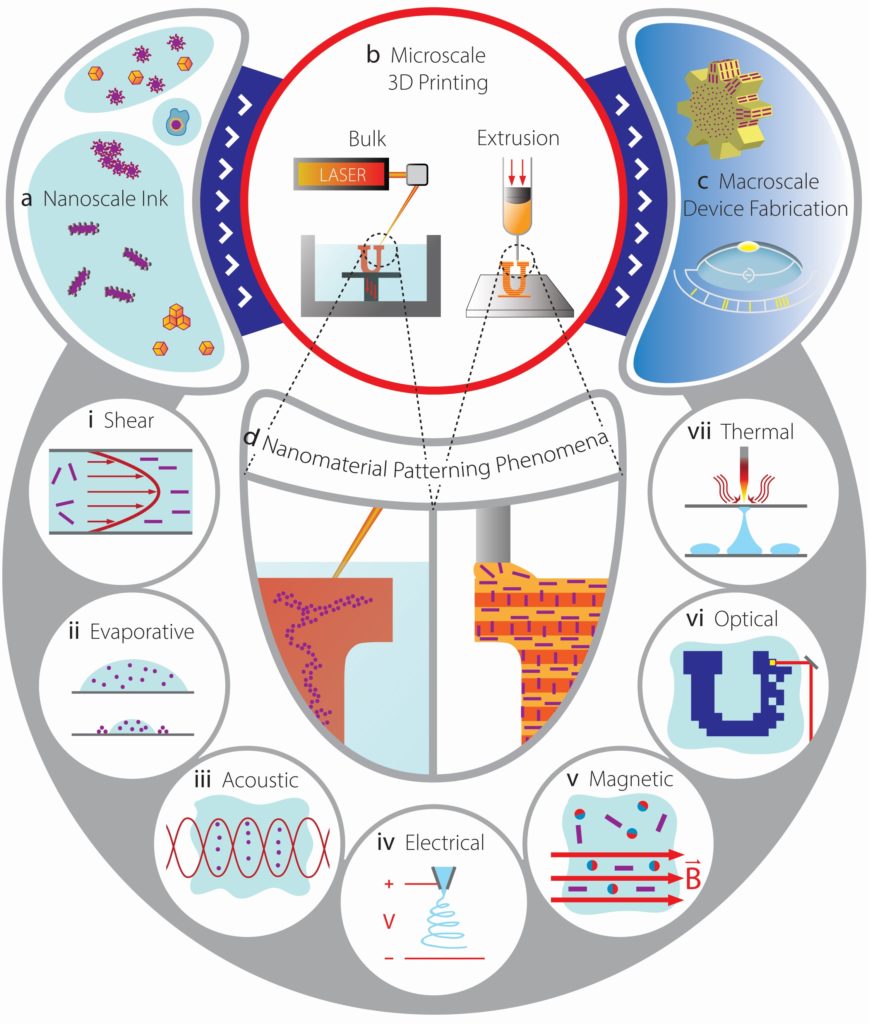 University of Utah mechanical engineering assistant professor Yong Lin Kong has received the National Institutes of Health Trailblazer Award to research an innovative 3D printing process that integrates wireless sensors in total joint arthroplasties (TJAs).
University of Utah mechanical engineering assistant professor Yong Lin Kong has received the National Institutes of Health Trailblazer Award to research an innovative 3D printing process that integrates wireless sensors in total joint arthroplasties (TJAs).
A TJA, also known as a total joint replacement, is a procedure to replace the arthritic or dysfunctional joint with a prosthetic device. It aims to replicate the movement of a normal joint, to reduce the pain caused by the damaged or arthritic joint, and to restore mobility of the patient who no longer responds to non-surgical therapies.
While a TJA can be helpful for patients, these devices can fail for a variety of reasons. For example, fibrotic tissue at the bone-implant interface can prevent it from remaining secure, leading to excessive wear.
Kong proposes a process of 3D printing custom wireless sensors that can measure important data such as strain, force and pressure on the prosthetic. This information could help doctors determine an optimal placement for the device, aid the patient in postoperative rehabilitation, and provide important data in the development of future designs. The sensors can be directly printed on existing arthroplasty components, eliminating the need to modify the implant.
“I am extremely excited for the opportunity to establish a fundamentally new research program that can potentially address a broad range of unmet clinical needs,” Kong said. “The ability to integrate electronics mechanisms to existing TJA implants can transform osteoarthritis treatment, and the award provides critical resources needed to achieve this vision.”
Kong has been with the University of Utah since 2018. He earned his doctorate degree in mechanical engineering and materials science from Princeton University. The NIH Trailblazer Award is for three years, with a total awarded amount of $605,800.
Pictured Right: Multiscale 3D printing of functional devices with nanomaterials: a) the synergistic integration of nanoscale functional materials with b) a wide range of micrometer‐scale 3D printing technologies, classified here as “bulk” and “extrusion” based printing c) can enable the creation of architecture and devices with an unprecedented level of complexity and functional integration. d) Multiscale 3D printing can be achieved via the patterning of nanomaterials integrated with 3D printing processes, driven or assisted by leveraging physical phenomenon such as i) shear, ii) evaporative, iii) acoustic, iv) electrical, v) magnetic, vi) optical, or vii) thermal phenomena. (Color legends: Red: patterning phenomena; light blue: 3D printing medium; purple: nanomaterials; and dark blue: cured/sintered ink.) B. Elder, R. Neupane, E. Tokita, U. Ghosh, S. Hales, Y. L. Kong*, Nanomaterial Patterning in 3D Printing, Advanced Materials 1907142 (2020).
